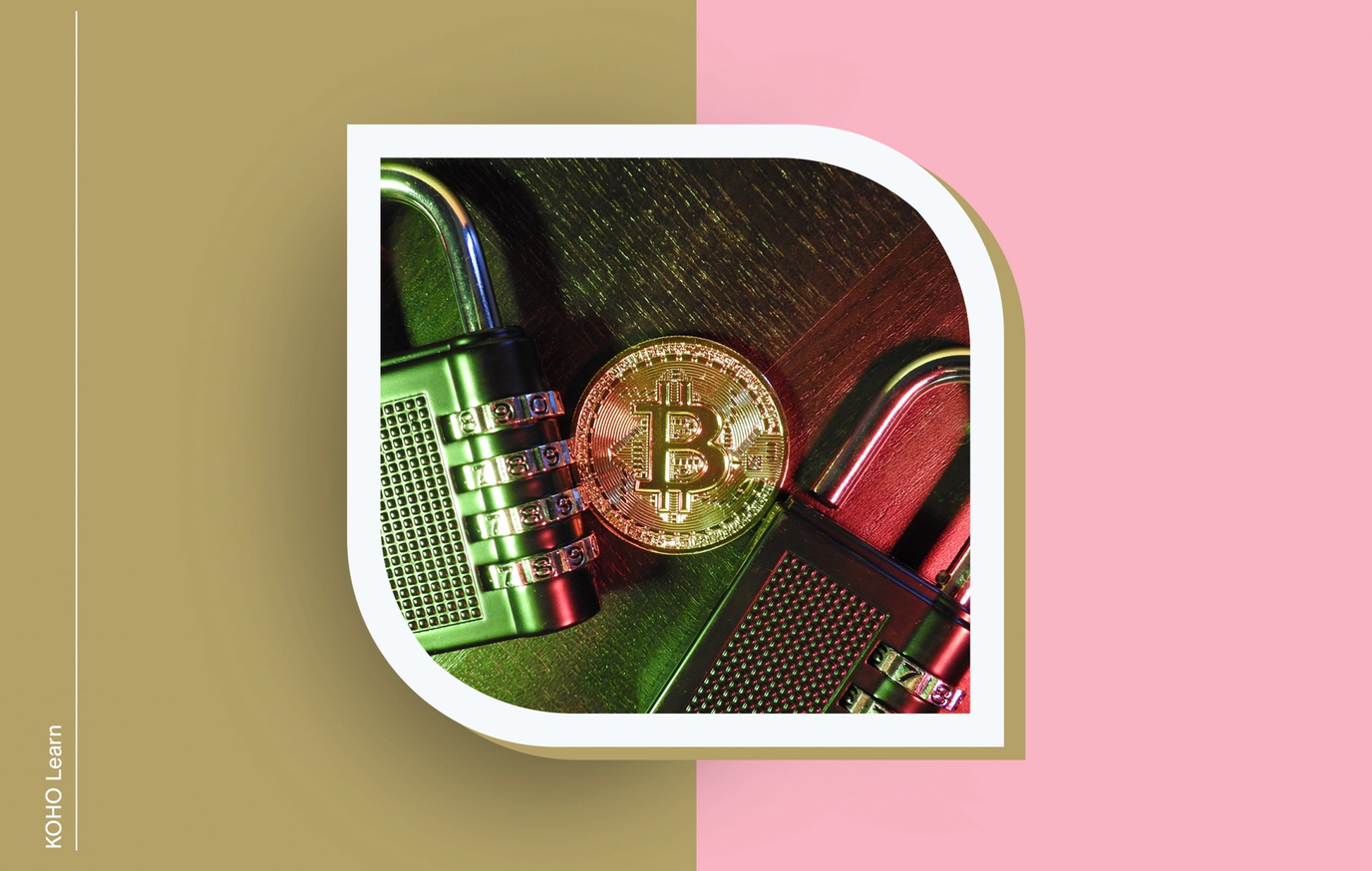Back
Can cryptocurrency be stolen?
7 min read

Written By
Ryan Severance
Rounding it up
Cryptocurrencies are very secure when managed properly, but can be stolen.
Approximately $600 million in cryptocurrencies was stolen in a single heist.
The underlying blockchain technology makes it hard for thieves to sell stolen tokens.
The easiest way to lose your cryptocurrency is by divulging your personal info to others.
Cryptocurrencies are rapidly gaining steam with the general public despite numerous proclamations that they’re simply a passing fad. Many Canadians, who previously were totally unfamiliar with the likes of Bitcoin, Ethereum, and Tether just a few years ago, are now eagerly investing their money in the crypto marketplace. Unfortunately, some of these newcomers remain unfamiliar with the basic technology behind cryptocurrencies and have important questions that need answering.
Are cryptocurrencies really here to stay? Can cryptocurrencies be stolen like traditional cash? Here’s a breakdown of modern cryptocurrency scams and how to protect your digital assets.
Cryptocurrency Heists Have Already Happened
There’s no denying that some cryptocurrencies are vulnerable to theft. After all, some major cryptocurrency heists have already happened, leaving initial investors high and dry when scammers made off with their money. Some of the most prominent cryptocurrency heists involve mind-boggling sums of money, such as the $600 million caper that hit the decentralized finance platform Poly Network.
While that loss may seem huge, the underlying story is far more complicated. The hackers who made off with $600 million in cryptocurrencies after exploiting a platform vulnerability actually ended up returning virtually all of the stolen money. Claiming to be a good samaritan who simply wanted to generate awareness about the vulnerability before someone else exploited it, the anonymous figure(s) responsible likely couldn’t have spent the money even if they wanted to.
This is because cryptocurrencies mostly remain very secure from theft, though it is indeed possible to steal someone else’s assets through a variety of means. As expert Tim Robinson told CNBC, it’s one thing to steal crypto-assets from someone else, but laundering them and spending them without getting caught is another thing entirely. Robinson notes that “due to the transparency of the blockchain and the use of blockchain analytics,” the money cannot actually be spent without exposing the hackers to jeopardy.
So while cryptocurrencies can be stolen, it’s often very difficult for the thieves to make real use of them. Nevertheless, some scammers have still found ways to effectively steal and use cryptocurrencies. The truth of the matter is that most cryptocurrency enthusiasts don’t have $600 million in crypto to steal, but they can still be vulnerable to theft and scams, especially if they’re careless.
SPEND SMARTER. SAVE FASTER
Popular Cryptocurrency Scams
Cryptocurrencies are regulated across the world, in some places more than others, and usually they’re regulated similarly to securities. That being said, regulators and law enforcement officials have less commitment and fewer capacities to hunt down crypto-scammers than they do more traditional financial criminals. With blockchain technology and the general crypto-marketplace still being relatively young, global enforcement mechanisms against fraud and theft are still being developed with varying levels of success.
The following methods are frequently relied on by crypto-scammers:
Phishing attacks. Tricking users into voluntarily giving up their personal information is one of the oldest and most effective scamming methods in the history of the internet. Some scammers will send emails, texts, and other messages with dangerous links or misleading questions that can lead users to divulge access to their personal cryptocurrency wallets.
Malware. Like phishing, malware is an old enemy of internet users trying to avoid scammers. Infecting a device such as a USB stick with malware before giving it to a cryptocurrency enthusiast could give hackers access to private wallets. Remember to be cautious when plugging outside devices into your network!
Platform vulnerability. Cryptocurrency platforms like Poly Network may have vulnerabilities that can be accessed by outside hackers, such as the one who made off with $600 million in other people’s assets. Tech experts and “white hat” hackers regularly look to plug any gaps in the digital defenses they can find, but scammers and unethical hackers will always be on the prowl for new ways to exploit popular trading platforms.
This is why one of the five things to know about investing in cryptocurrency is that these assets are very loosely regulated and mostly uninsured. Those who lose their money to hackers or scammers will often be at their mercy when it comes to getting your money back. Local, national, and international law enforcement agencies aren’t always able to help users who have been scammed out of their wallets.
Thus, while cryptocurrencies are perfectly legal, they’re not considered to be as safe and stable as more traditional forms of saving and investment. Whereas bank deposits are federally insured in the United States and Canada, for instance, cryptocurrency wallets are not covered by government insurance requirements anywhere. Furthermore, some government agencies like the Canada Revenue Agency don’t allow citizens to pay taxes with cryptocurrencies, though crypto-transactions are taxed.
The Future Of Cryptocurrency Security
It’s almost impossible to predict what the state of the cryptocurrency marketplace will be in just a few years’ time, but there is some speculation out there regarding the future of cryptocurrency security. As major platforms become more popular with the masses, they’ll invest sizeable sums of time and money in security measures designed to protect users. Ultimately, however, many cryptocurrency users will have to take steps themselves to avoid being scammed. After all, a financial institution or regulation can’t prevent you from accidentally divulging your password.
Some experts are pointing out that blockchains are now being hacked far more frequently than many people expected when cryptocurrencies first seized the public’s attention. As more time passes and the crypto-marketplace grows in size and value, we can expect major criminal organizations to form in an effort to optimize the theft of these digital assets.
How governments and private financial institutions will react to the continued spread of cryptocurrencies also remains to be seen; some countries like El Salvador are adopting cryptocurrencies as legal tender, but whether this will become widespread is impossible to say with certainty.
The growing interest around cryptocurrencies in Silicon Valley could lead to sizeable changes to the marketplace, too. Massive tech companies like Facebook have announced they intend to develop their own cryptocurrencies, for instance. The impact tech giants will have on the regulatory environment in the United States and other major economies could be seismic, depending on whether they successfully lobby for crypto-regulations that benefit them.
SPEND SMARTER. SAVE FASTER
Staying Safe From Scams
Cryptocurrency enthusiasts should understand that the easiest way to lose their valuable money is by accidentally divulging personal information to scammers. Phishing attacks, malware, and other malicious efforts to access your personal devices or find out your log-in details are the primary threat facing most consumers. In order to stay safe from these scams, remember the following tips:
Keep careful control of your private keys, never exposing them to others
Remember that if you lose your private key, you’re effectively locked out from your wallet
Consider buying a cold wallet to store your information offline
Carefully research an exchange before trusting it with your financial information
Use an authenticator app for two-factor authentication, rather than SMS
Always exercise skepticism when contacted by strangers interested in your wallet
Unfortunately, cryptocurrency enthusiasts are likely going to have to deal with increasing fraud in the foreseeable future. This is a natural result of cryptocurrency’s growing popularity; as more users and money flood the crypto-marketplace, fraudsters will have additional incentives to run scams. Users will always find that their skepticism and common sense are the best first line of defense against scammers who want to exploit this burgeoning sector.
Newcomers to the crypto-scene should also familiarize themselves with “pump-and-dumps.” Social media speculation about cryptocurrency prices is often nothing more than a group of scammers trying to run up the price of a specific currency before cashing out when its valuation temporarily soars before cratering. Be very cautious when others discuss the “next moonshot” or an “exciting opportunity” that’s sure to earn you a huge sum of money.
Proceed with Caution
Cryptocurrencies are digital assets that are usually quite secure, especially when the underlying blockchain technology makes it hard for hackers to spend any assets they do manage to steal. Nevertheless, crypto-investors should always exercise caution when accessing their personal wallets and be on constant lookout for phishing efforts. They should also learn to maintain realistic expectations in order to avoid falling for pump-and-dump schemes.
Are you interested in cryptocurrencies? Remember to keep your wits about you as you plunge into this exciting marketplace full of potential and peril alike.

About the author
Ryan Severance is a professional freelance author and the owner of American Scribe LLC. With degrees in political science and socio-legal studies, he writes about business, politics, and law for clients around the world.
Read more about this author